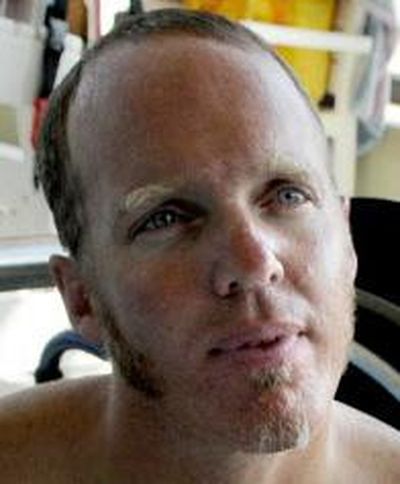Sen. Patty Murray’s VA bill amendment would provide in-vitro fertilization for veterans

Sean Halsted set aside dreams of fatherhood after a spinal cord injury.
After a 40-foot fall from an Air Force helicopter during a training exercise, Halsted was paralyzed from the waist down. He and his wife, Sarah, spent the next few years rebuilding their lives, adjusting to the new reality of Halsted – a former Washington State University rower – in a wheelchair.
But five years after the accident, the Rathdrum couple decided they still wanted kids. They spent $20,000 to have three children through in-vitro fertilization.
It’s an option other military veterans should have, Halsted said in advance of a vote by the U.S. Senate on extending fertility treatment to injured vets through the U.S. Department of Veterans Affairs.
“Life is richer with kids,” said Halstead, 45, who is dad to 12-year-old twins and a 6-year-old. “Having them gives me a lot of motivation. You want them to be proud of you.”
U.S. Sen. Patty Murray, D-Wash., has attached a provision to a VA appropriations bill that would provide $88 million over two years to help veterans with service-related injuries and their spouses conceive. The bill is expected to be voted on in the Senate as early as Thursday.
“For years, I’ve heard from veterans and their spouses who had dreams of starting a family, but because of injuries they sustained on behalf of our country, they could not conceive on their own,” Murray said in a statement.
In-vitro fertilization is “a cost of going to war” that the VA should cover, she said.
This is Murray’s fourth run at overturning a ban that prevents the VA from providing in-vitro fertilization to veterans and their spouses, a procedure where a woman’s eggs are fertilized outside the body and then implanted in the womb. In 2012, the legislation passed the Senate but stalled in the U.S. House of Representatives.
In a government quirk, injured active duty personnel can qualify for in-vitro fertilization in some cases, but veterans are currently exempt, said Kerry Arndt, Murray’s spokeswomen.
All veterans with service-related injuries that prevent natural conception would be covered for reproductive treatments, though the measure doesn’t spell out whether surrogate pregnancies for female veterans are included. Murray supports that, but it would be up to the VA to determine whether surrogate pregnancies fall within the scope of treatment, Arndt said.
Halsted couldn’t fathom parenthood in the first years after his injury. His initial reaction was, “I can’t do kids; it’s too hard.”
Watching a friend from the Northwest Paralyzed Veterans of America interact with his children changed Halsted’s mind. To afford in-vitro fertilization, he and his wife used a medical settlement from a botched surgery to cover the cost.
Halsted’s phone is filled with pictures of family dinners, cello recitals and soccer games. His days are busy with getting kids to school, homework and after-school activities. It’s a life he didn’t expect to have after his injury.
“If we can help the life not be as focused on the (wheel)chair, it’s a better life,” Halsted said.